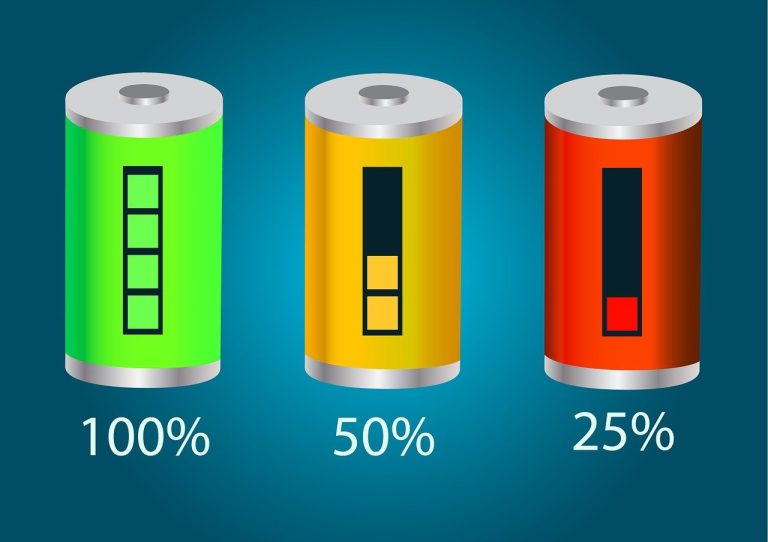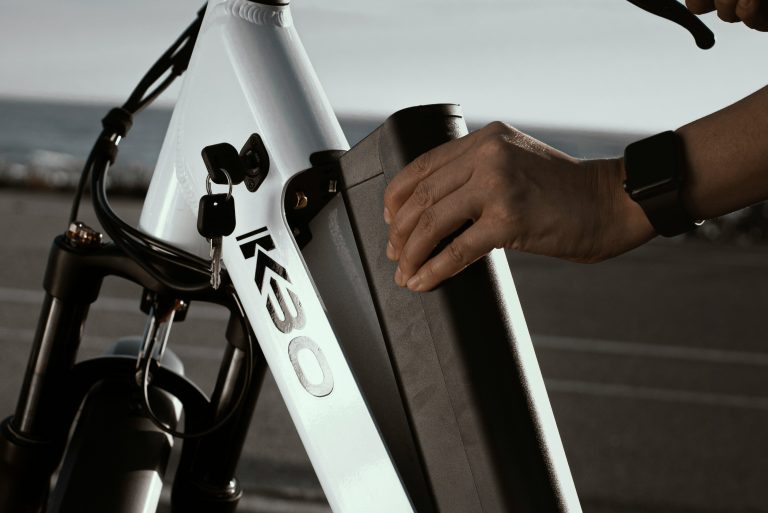How Long Do Ebike Batteries Last?
Have you ever wondered about the lifespan of an ebike battery? Well, wonder no more! In this article, we will explore the question of how long do ebike batteries last. Whether you’re a seasoned ebike enthusiast or just starting out, understanding the lifespan of your battery is crucial in ensuring optimal performance and maximizing your riding experience. So, let’s dive in and shed some light on this often asked question.

Factors Affecting Ebike Battery Lifespan
Battery Chemistry
The type of battery chemistry used in an ebike battery greatly affects its lifespan. The most common types of batteries used in ebikes are lithium-ion, lead-acid, and nickel-based batteries. Each type has its own advantages and disadvantages, and their lifespan can vary depending on factors such as usage, maintenance, and temperature.
Battery Capacity
The capacity of an ebike battery, measured in watt-hours (Wh), also plays a significant role in determining its lifespan. A higher capacity battery generally lasts longer as it can provide more power to the motor. However, it is important to note that the actual lifespan may also be influenced by other factors such as charging cycles and operating temperature.
Charging Cycles
Charging cycles refer to the process of charging and discharging the battery. Every time you charge and use your ebike battery, it counts as one charging cycle. The number of charging cycles a battery can undergo before it starts to degrade varies depending on the battery chemistry. Generally, lithium-ion batteries can withstand hundreds of charging cycles, while lead-acid and nickel-based batteries have a lower cycle life. It is essential to keep track of the number of charging cycles your battery has undergone to estimate its remaining lifespan accurately.
Operating Temperature
The temperature at which you operate your ebike battery can impact its lifespan. Extreme temperatures, either hot or cold, can affect the performance and longevity of the battery. It is recommended to avoid exposing the battery to temperature extremes and storing it in a place with moderate temperatures. High temperatures can accelerate the degradation process and reduce the overall lifespan of the battery.
Storage Conditions
Proper storage conditions are crucial for maintaining the lifespan of an ebike battery. If you are not using your ebike for an extended period, it is essential to store the battery in a cool and dry place. Extreme temperatures and excessive moisture can negatively impact the battery’s performance and lead to faster degradation. It is also important to store the battery in a partially charged state, typically between 40-80%, to prevent over-discharge or overcharge.
Average Lifespan of Ebike Batteries
Lithium-ion Batteries
Lithium-ion batteries, known for their high energy density and lightweight, are the most common choice for ebike batteries. On average, a well-maintained lithium-ion battery can last for approximately 2-4 years or around 500-1000 charging cycles. However, it is important to note that the lifespan of a lithium-ion battery can be influenced by factors such as usage patterns, charging habits, and temperature conditions.
Lead-acid Batteries
Lead-acid batteries, although less common in ebikes due to their weight and lower energy density, still find usage in some electric bike models. These batteries are generally more affordable compared to lithium-ion batteries but have a shorter lifespan. On average, a lead-acid battery can last for approximately 1-3 years or around 150-300 charging cycles. Proper maintenance and charging habits are crucial for maximizing the lifespan of lead-acid batteries.
Nickel-based Batteries
Nickel-based batteries, including nickel-cadmium (NiCd) and nickel-metal hydride (NiMH) batteries, were popular in the early days of ebikes but have been largely phased out due to their lower energy density and toxicity. These batteries have a shorter lifespan compared to lithium-ion batteries and can last approximately 2-5 years or around 300-500 charging cycles with proper usage and maintenance.

Signs of a Degrading Ebike Battery
Reduced Range
One of the most common signs of a degrading ebike battery is a noticeable decrease in the range it can provide. As the battery ages, it becomes less efficient and can store less charge, resulting in a reduced range. If you find yourself needing to recharge your battery more frequently or noticing a decrease in the distance you can travel on a single charge, it may be an indication that your battery is degrading.
Slower Charging Time
If you notice that your ebike battery is taking longer to charge than it used to, it could be a sign of a degrading battery. As the battery deteriorates, it may not accept and hold the charge as efficiently as before, resulting in longer charging times. If you experience unusually long charging periods, it may be worth considering the health of your battery.
Increased Internal Resistance
Internal resistance refers to the resistance the battery encounters when delivering power. An increase in internal resistance can lead to inefficient energy transfer, reduced performance, and decreased battery lifespan. If you notice a significant decrease in your ebike’s power output or a sudden drop in performance, it could be an indication of increased internal resistance in the battery.
Unusual Heating
Excessive heat generation from the battery during usage or charging can be a sign of a degrading battery. While it is normal for batteries to produce some heat during operation, excessive or unusual heating can indicate a problem. Heat is a byproduct of inefficiencies within the battery and can accelerate its degradation. If you consistently notice your ebike battery getting unusually hot, it is recommended to have it checked by a professional.
Voltage Fluctuations
Voltage fluctuations, reflected in erratic power delivery or sudden drops in voltage, can be indicative of a degrading battery. In healthy batteries, the voltage output remains relatively stable during usage. However, if you notice inconsistent voltage levels or sudden drops in power, it may be a sign that your ebike battery is reaching the end of its lifespan.

Tips to Extend Ebike Battery Lifespan
Proper Charging Habits
Adopting proper charging habits is crucial for maintaining the lifespan of your ebike battery. Avoid overcharging or leaving the battery fully discharged for extended periods. It is recommended to charge the battery after every ride and unplug it once fully charged. If you are storing the battery for a long period, ensure it is at a partially charged state to prevent over-discharge.
Avoiding Extreme Temperature Conditions
Extreme temperatures, whether hot or cold, can significantly impact the performance and lifespan of your ebike battery. Avoid exposing the battery to direct sunlight, high temperatures, or low freezing temperatures. If you live in an area with extreme weather conditions, consider storing your battery in a temperature-controlled environment when not in use.
Regular Maintenance
Regular maintenance of your ebike and its battery can go a long way in extending its lifespan. Keep the battery and its connectors clean and free from dirt or debris. Inspect the battery regularly for signs of damage such as cracks or leaks. If you notice any issues, it is advisable to get it checked or repaired by a professional.
Storing and Charging Battery Correctly
Proper storage and charging practices can significantly impact the lifespan of your ebike battery. Store the battery in a cool and dry place, away from direct sunlight or extreme temperatures. When charging, use the charger specifically designed for your battery type and follow the manufacturer’s instructions. Avoid using aftermarket chargers or adapters that may not be compatible or safe for your battery.
Avoiding Deep Discharges
Deep discharges, where the battery is discharged to very low levels, can be detrimental to the overall lifespan of the battery. It is recommended to avoid completely draining the battery and recharge it before it reaches a critically low level. Regularly check the battery indicator or use a battery management system to monitor the charge level and prevent deep discharges.

Replacing an Ebike Battery
Cost Considerations
Replacing an ebike battery can be a significant investment, so it is important to consider the cost before making a decision. The cost of a new battery can vary depending on the battery chemistry, capacity, and brand. It is recommended to research and compare prices from reputable sellers or consult with a professional to determine the most cost-effective option for your specific ebike model.
Compatibility with Bike
When replacing an ebike battery, it is crucial to ensure that the new battery is compatible with your bike. Check the specifications and requirements provided by the manufacturer to ensure a proper fit and connection. Using an incompatible battery can lead to performance issues or even damage your ebike.
DIY vs Professional Replacement
Deciding whether to replace the ebike battery yourself or seek professional assistance depends on your technical skills and knowledge. If you are comfortable working with electrical components and have experience with ebike maintenance, you may choose to replace the battery yourself. However, if you are unsure or unfamiliar with the process, it is recommended to have a professional handle the replacement to ensure proper installation and minimize the risk of damage.
Recycling and Disposal
Proper disposal of the old battery is essential to protect the environment. Ebike batteries contain hazardous materials that should not be discarded in regular waste. Check with your local recycling centers or battery recycling programs to ensure that your old battery is disposed of correctly. Recycling programs often have drop-off points or collection events where you can safely dispose of your old batteries.







